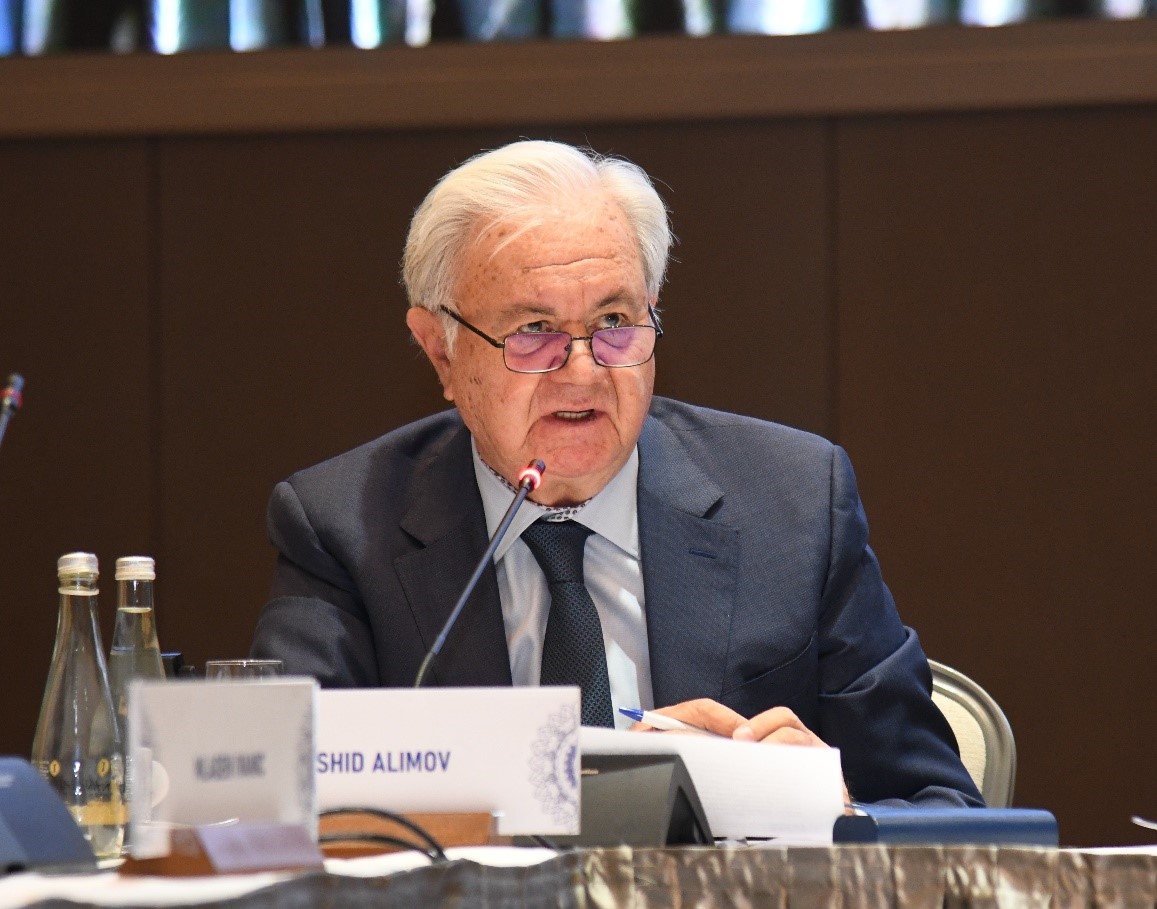Rashid Alimov Emphasizes Uzbekistan’s Key Role in Shaping Central Asia’s Climate Agenda

On 19 August, in Tashkent, during the High-Level Meeting between Uzbekistan, Azerbaijan, and European partners on the theme “Cooperation for Common Development,” former SCO Secretary-General Rashid Alimov highlighted the crucial role of Uzbekistan in shaping and strengthening Central Asia’s climate agenda.
According to him, the format of Consultative Meetings of Central Asian heads of state, initiated by President of Uzbekistan Shavkat Mirziyoyev, today serves as a “strategic shield” for the region in addressing growing environmental challenges.
At the same time, to enhance the effectiveness of this mechanism, Alimov emphasized the need for coordinated actions among all countries in the region aimed at establishing a unified climate policy. Moreover, he noted the particular importance of expanding international partnerships, especially with technologically advanced nations.
In this context, he highly praised the European initiative “Green Central Asia” and the investment agreement signed with the European Bank for Reconstruction and Development in Samarkand, which open new prospects for collaborative efforts in the region.
According to the former SCO Secretary-General, the key areas of such cooperation should include investments in green technologies, conducting cross-border scientific research, sharing data on greenhouse gas emissions, and broad-based environmental education for the public.
“Only through joint actions and strategic leadership can the region ensure sustainable development and effectively respond to the escalating climate threats,” concluded Rashid Alimov.
The event was organized by the Institute of Strategic and Interregional Studies under the President of the Republic of Uzbekistan, the Agency for Strategic Reforms under the President of the Republic of Uzbekistan, and the Nizami Ganjavi International Center, with support from the Ministry of Foreign Affairs of the Republic of Uzbekistan.
The forum brought together over 30 distinguished guests, including former heads of state and government from countries such as Norway, Bosnia and Herzegovina, Bulgaria, Latvia, Croatia, Austria, and the Czech Republic. Representatives from leading international organizations—including the United Nations, the World Bank, and the Shanghai Cooperation Organization—also participated.
From the Uzbek side, the meeting included leadership from the Ministry of Foreign Affairs, the Ministry of Transport, the Ministry of Environmental Protection and Climate Change, the Ministry of Digital Technologies, the Ministry of Economy and Finance, as well as leading analytical centers in the country.
Previous

Yerkin Baidarov, a researcher at the R.B. Suleimenov Institute of Oriental Studies of the Committee of Science under the Ministry of Education and Science of the Republic of Kazakhstan, shared his views while speaking on August 15 at the scientific-practical conference on regional identity within the framework of the Central Asian Expert Forum (CAEF) in Tashkent.
20.08.2025Next

On 19 August, during the High-Level Meeting in Tashkent between Uzbekistan, Azerbaijan, and European partners on the theme “Cooperation for Common Development,” Susan Elliott, Director General of the U.S. National Committee on Foreign Policy, shared her assessment of the reforms being implemented in Uzbekistan.
20.08.2025





